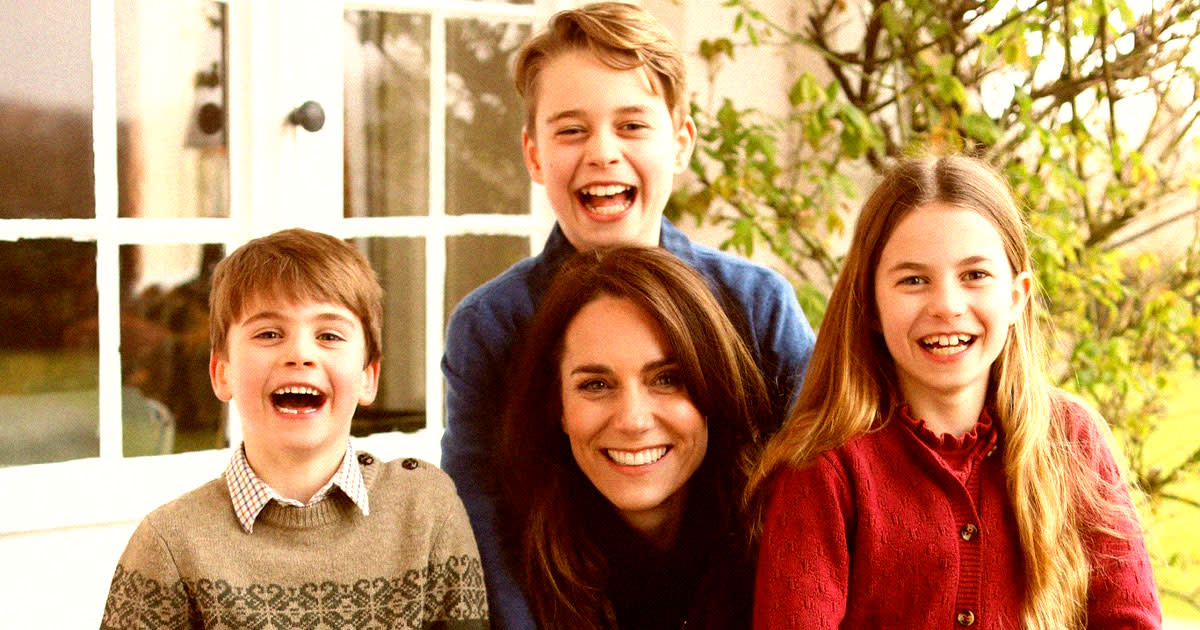People Noticed Something Very Strange About This New "Photo" of Kate Middleton

Early Sunday morning, princess of Wales Kate Middleton shared a seemingly harmless Mother's Day photo of her surrounded by her three children on Instagram.
What she likely didn't expect was the ensuing media chaos following the widespread dissemination of the image across the media.
Shortly after the image started circulating online, some of those same agencies, as well as news outlets including the New York Times and the Washington Post, took the image down.
Why? The image was more than likely manipulated, as the Associated Press warned in a rare "kill notification."
In a subsequent post explaining its decision, the AP said the image didn't meet its "editorial standards" which "state that the image must be accurate."
The bizarre incident highlights just how primed we've become to notice inconsistencies in photos posted on social media. Especially since AI-powered photo editing tools have become widely accessible, and the lines continue to blur between real and entirely made-up images and even video, netizens have seemingly become extremely wary of manipulation of any kind.
And that's a potentially dangerous, double-edged sword. On one hand, calling out when an image was manipulated, and holding those who try to mislead the public accountable for their actions, is as important as ever.
On the other hand, there's the danger of having this innate skepticism crossing the threshold into cynicism and conspiracy, further eroding our already tenuous connection to what is real and what was manipulated.
The Middleton Mother's Day affair arguably falls somewhere in the middle.
There's compounding evidence that the image itself, which made the cover of several daily newspapers and tabloids in the UK on Sunday, was indeed manipulated. As the Independent reports, the photo's metadata showed that it was saved in Adobe Photoshop twice on Friday and Saturday, though it's unclear if the software's AI tools were used.
Small but glaring inconsistencies were evident across the image, from a strange, shoddily edited skirt and sleeve belonging to Middleton's daughter, to a strangely blurred-out hand.
Others speculated that Middleton's face and hair were pasted into the middle and a body double took her place in the original photograph. Middleton is recovering from serious abdominal surgery and may not have been able to sit upright for the image — or at least for very long. Another possibility is that her face and hair were pasted in from a different photo from the same shoot.
Some users even went as far as to argue that the image was taken four months ago during a well-publicized media event but was edited to show them in different outfits.
On Monday, the princess apologized for the gaffe.
"Like many amateur photographers, I do occasionally experiment with editing," she wrote in an Instagram post. "I wanted to express my apologies for any confusion the family photograph we shared yesterday caused."
Regardless of intent or who edited the photo, the fact that several news agencies took the image down following its dissemination is fascinating in and of itself.
Where do we draw the line when it comes to manipulated images? Are "yassified" faces okay? What about composites?
And where does all this fall when it comes to AI? We've already come across several instances of entirely AI-generated images making their rounds on social media. Last year, Adobe was even caught selling the rights to AI-generated images of the Israel-Hamas war.
In August, the AP said that despite its licensing agreement with ChatGPT maker OpenAI, "we do not see AI as a replacement for journalism in any way" and that it doesn't "allow the use of generative AI to add or subtract any elements" to photos, video, or audio.
"We will refrain from transmitting any AI-generated images that are suspected or proven to be false depictions of reality," the note reads.
AI or not, Middleton's Mother's Day post has turned into an "inexplicable mess," as Wired put it, highlighting how quickly an otherwise harmless post can balloon into a media circus and lead to the dissemination of conspiracy theories on social media.
As the AP suggested, "efforts to tamp down rumors and supposition may have backfired after royal observers noticed inconsistencies in the photo’s details."
However, Kensington Palace is sticking to its guns and has refused to reveal the original, unedited photo.
"We’ve seen the madness of social media and that is not going to change our strategy," royal aides told UK tabloid The Sun. "There has been much on social media but the princess has a right to privacy and asks the public to respect that."
More on photo editing: Wikipedia No Longer Considers CNET a "Generally Reliable" Source After AI Scandal


